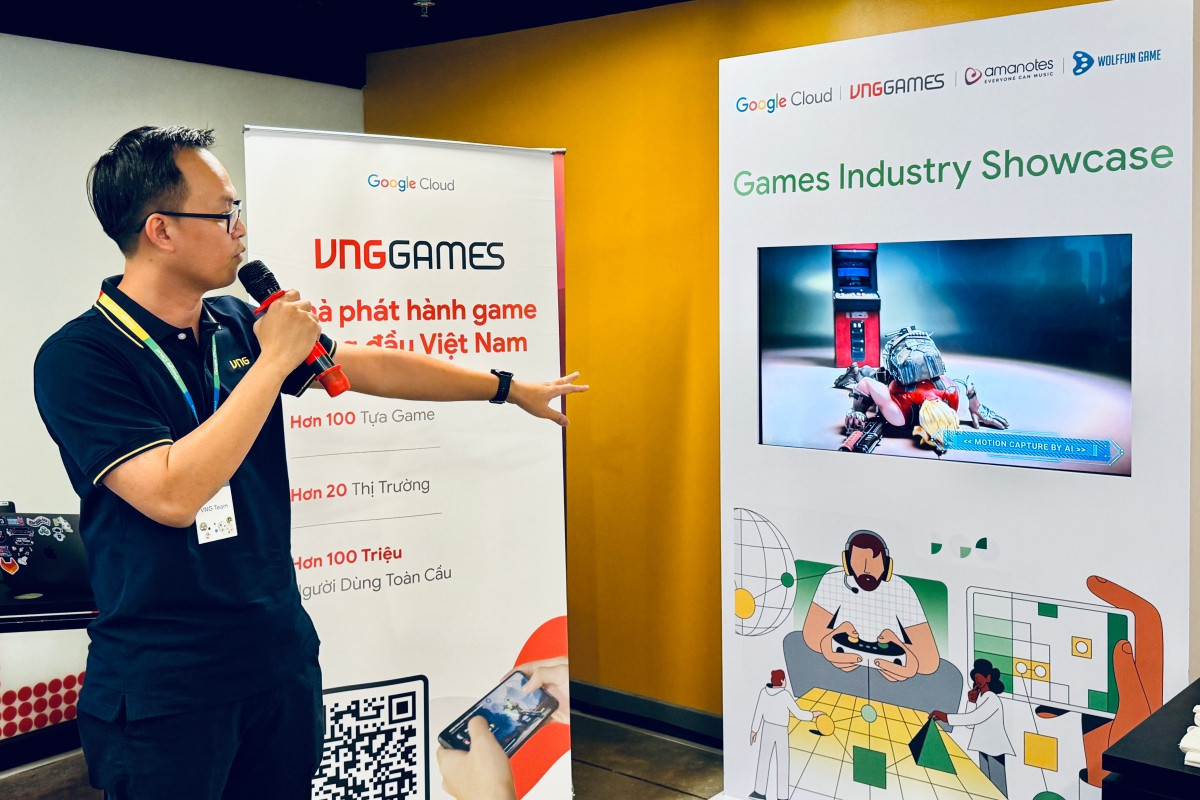
Nguyen Duc Toan, CEO of Google Cloud in Vietnam, believes that generative AI will have the greatest impact on the gaming industry after the advent of real-time 3D graphics and smartphones. By being at the forefront of technology adoption, the gaming industry can serve as a beacon for enterprises in other business fields, introducing new ways to inform, attract and connect people on a large scale.
Commenting about the role of AI in game production, VNG Games, Amanotes and Wolffun Game all said that the technology has helped them solve many problems, both in and outside the gaming industry.
According to Amanotes’ CEO and co-founder Vo Tuan Binh, one of the factors helping the company’s game products obtain over 3 billion downloads from app stores is the use of AI in analyzing data to maintain its products.
Amanotes considers AI as the next weapon in technology renovation and is exploiting AI to redefine game development and publishing. The firm has made heavy investments in machine learning systems, cooperating with Google Cloud and Cloud Ace to deploy automation.
Creating game content is one of the most costly expense items for game studios, both in human resources and financial capability. Even with big investments, groups of developers face difficulties in satisfying players’ requirements on new content, especially when the number of gamers reaches international stature.
In this case, generative AI in game content production is helping studios in Vietnam solve a lot of problems, including time and cost.
Nguyen Dinh Khanh, CEO of Wolffun Game, said he has been working as a designer at the firm since its establishment. He noted that previously graphics designers in the company asked him for help, but recently they have not raised questions. He has found that his workers now expect to get answers from AI rather than the CEO. Also thanks to AI, the coders make fewer mistakes.
Khanh went on to say that Wolffun Game is considering using Google Cloud’s Vertex AI for its latest game Thetan Rivals to quickly build and try advanced chatbots that can converse naturally with players and instantly create customized versions of in-game items or character interfaces through prompts using simple, natural language.
The company is also planning to integrate generative AI into a creative app named Thetan Creator, allowing users to create characters and original content specifically for themselves. The integration will create completely new content in real time, based on users’ demands.
Le Trong Giap from VNG, a technology unicorn startup, thinks that AI is now a hot topic in all fields, not only in the gaming industry. VNG is discovering and applying AI solutions for games they produce and distribute as much as possible. This minimizes processes, especially time for development.
At present, the firm is trying Project Creative AI, which designs characters in games in a quick and creative manner.
He said that in the last few years, the firm has been trying to bring its games abroad and sell in the Southeast Asian market. Gunny Origin and Dead Target games have reaped success in Vietnam and foreign markets.
According to Giap, the company faces two problems going global – local languages and culture. On the same server, players are from many different countries, so it is a difficult task to set languages for players from every country. Therefore, the company decided to use Google Cloud’s API Translation to solve the problem.
It is also difficult to satisfy players from countries which have different cultural values. For example, players of a country may want the characters in the game to wear their traditional clothes. However, with generative AI, this will be easy to do.
Do Tien Thinh, deputy director of the National Innovation and Creative Center, said he can see the ‘Go Global’ trend among gaming firms. A report found that there is one Vietnam-made game for every 25 games downloaded.
Le My